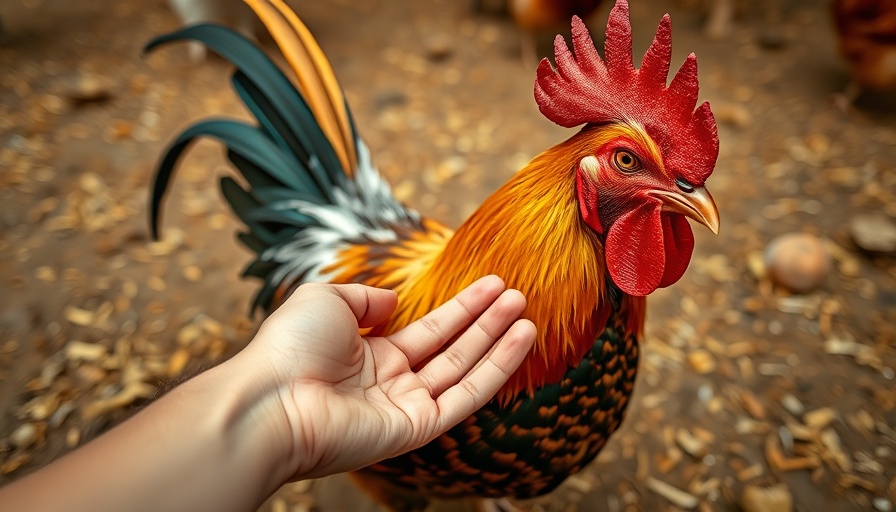
Understanding Rooster Behavior: A Deeper Dive
If you've ever been puzzled about what your rooster is doing while approaching your hand, you're not alone. Many chicken owners encounter this behavior, often interpreting it in various ways. Roosters exhibit a range of actions that can be indicative of their biological motivations. For example, they may be claiming you as part of their flock or displaying courtship behavior during mating seasons.
Why Does My Rooster Peck?
Pecking can be an affectionate gesture or a sign of dominance. Roosters are known to communicate through physical actions, and pecking is one way they assert their place in the hierarchy. Furthermore, this behavior can signal curiosity or a desire to engage, particularly towards familiar humans. What may appear as aggression can sometimes translate into a playful interaction.
How to Interpret These Actions
Recognizing the context of your rooster's behavior is crucial. Factors such as the surrounding environment, time of day, and interactions with flock members can all influence how a rooster acts towards a human. For instance, if a rooster is feeling protective over its hens, it may exhibit more forceful behavior. Understanding body language—like puffing up, fidgeting, or even vocalizations—can provide insights into its intentions.
Ensuring a Safe Interaction
To foster a more peaceful cohabitation with your rooster, observe its behavior closely before approaching. It’s advisable to engage with it calmly and handle it consistently to gain its trust. Training methods that include positive reinforcement can help to mitigate unwanted pecking behavior while promoting a healthier relationship between you and your avian companion.
 Add Row
Add Row  Add
Add 




 Add Row
Add Row  Add
Add 

Write A Comment